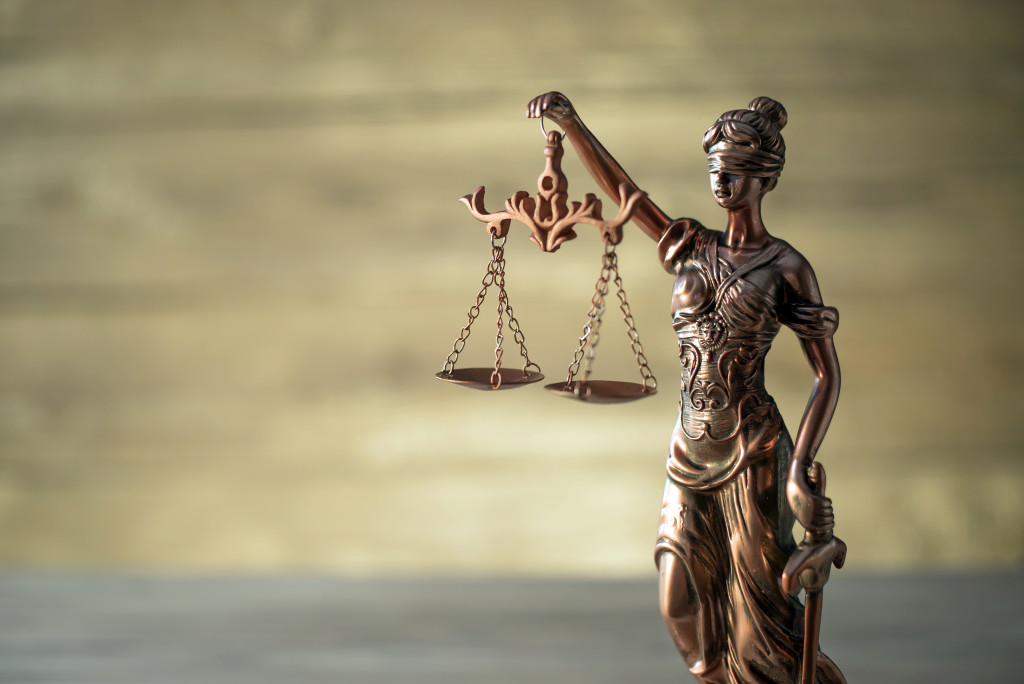
- Criminal convictions can lead to imprisonment, fines, and other penalties like loss of rights.
- Acquittal is a not-guilty verdict, but the defendant might still face civil consequences.
- Plea bargains and deferred adjudications can prevent harsher punishments but may imply a criminal record.
- Expunction erases criminal records, helping individuals avoid the stigma associated with a criminal past.
Criminal cases can have severe consequences on a person’s life and future. Whether you are faced with criminal charges or know someone who is, it’s essential to be aware of the potential outcomes of such cases. This blog will discuss crucial things you need to know about the possible consequences of criminal cases.
Criminal conviction
If you are found guilty of a criminal offense, the most common outcome is a criminal conviction. A conviction can result in imprisonment, heavy fines, probation, community service, or any combination of these punishments, depending on the nature of the offense. In addition to these penalties, a criminal conviction can have far-reaching consequences, such as loss of voting rights, difficulty in finding employment, and social stigma.
Acquittal
An acquittal is the opposite of a conviction. It happens when the judge or jury finds the accused not guilty of the charges. Typically, the defendant is free to go following an acquittal. However, an acquittal does not always mean that the defendant is completely off the hook. In some instances, the prosecution may appeal the verdict, or the defendant may still face civil consequences.
To ensure you get the most favorable acquittal, it’s essential to have a skilled lawyer by your side. They can help build a strong defense and cast doubt on the prosecution’s case. Choose a lawyer who is experienced in handling criminal cases and has a track record of successful acquittals.
Plea Bargain

In criminal proceedings, a plea bargain is an agreement between the prosecution and the defense whereby the defendant pleads guilty to a lesser charge or a reduced sentence in exchange for a guilty plea. A plea bargain can spare the defendant from harsher punishments or more severe charges, which may occur if the case goes to trial. However, a plea bargain may also mean that the defendant is giving up their right to a fair trial and may have to live with a criminal record.
Deferred Adjudication
Deferred adjudication is a type of plea bargain that requires the defendant to plead guilty or no contest to a charge, but the judge sets aside the formal conviction after the completion of a specified probation period. If the defendant successfully completes the probation, the charge may be dismissed. One advantage of deferred adjudication is that it allows the defendant to avoid a criminal record.
Expunction
Expunction is a legal remedy that allows a person to have their criminal records erased or sealed. In some cases, it may be granted automatically, such as in cases where the trial ends in an acquittal or a dismissal of the charges. A person may also seek expunction if they were arrested but not charged or if their charges were dismissed. Here are the four steps to expunction:
File a petition with the court.
Filing a petition is the first step to seeking an expunction of your criminal records. The petition should include information such as the charges, case number, date of arrest, and any other relevant details.
Serve notice to the prosecutor.
You must also serve notice of your petition to the prosecutor’s office. This gives them an opportunity to object or contest your request for expunction. This is also an essential step, as the prosecutor’s office may have valuable information that can help your case.
Attend a hearing.
After receiving notice, a judge will schedule a hearing where both parties can present their arguments. If the judge grants your request, they will issue an order for expunction.
Expungement of records.

Once you receive an order for expunction, you must submit it to all agencies that have records of your arrest or conviction. These may include law enforcement agencies, courts, and correctional facilities. After expungement, these records will no longer be available for public viewing.
Expunction is beneficial as it allows the person to move on with their life without the adverse effects of a criminal record.
Navigating through the complex landscape of criminal law can be challenging. Whether you’re facing a conviction, hoping for an acquittal, debating a plea bargain, exploring deferred adjudication, or seeking expunction, it’s crucial to have a sound understanding of these outcomes.
However, remember that every case is unique, and outcomes can significantly vary depending on the circumstances. It’s always wise to consult with an experienced criminal lawyer who can help you understand your options and work towards the best possible outcome for your situation. The journey may be difficult, but with the proper guidance, you can make informed decisions that will help protect your future.

